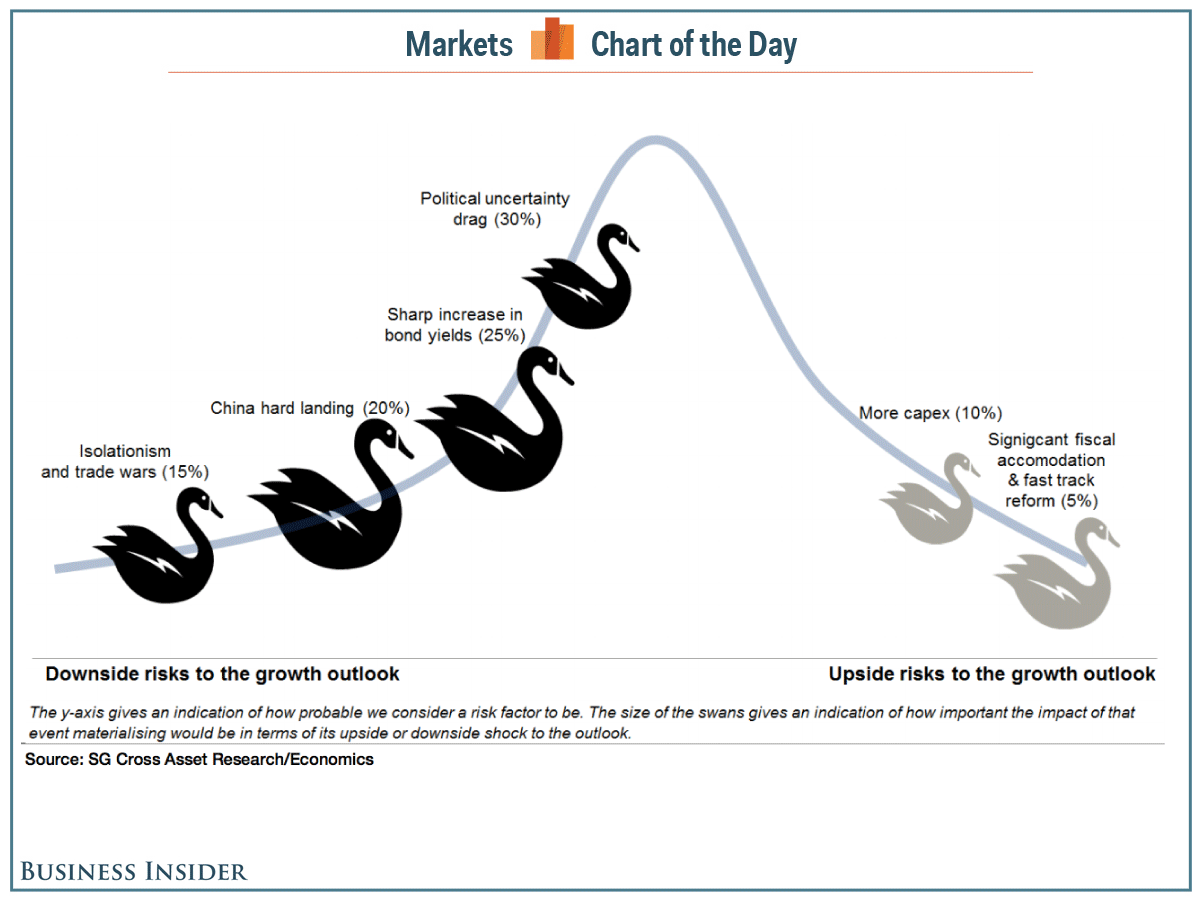Societe Generale is out with its latest quarterly chart of swan risks that threaten to rock the global financial markets.
Interestingly, the firm has not updated either the major negative or positive risks to markets since its November edition of the chart was published after the US election.
On the black swan side of the chart, the SocGen team lists political uncertainty drag, a sharp increase in bond yields, a China hard landing, and isolationism and trade wars as possible risks. On the white swan side, the team pointed to two upside risks: significant fiscal accommodations and fast-track reform in the US, and more capital expenditure.
We should reiterate that it’s a bit of a faux pas to call these forecasts “black swan events,” given that those are, by definition, nearly impossible to see coming. But when they materialize, it’s bad – and that’s the point SocGen’s team seems to be making.
“A sharp and significant jump up in bond yields poses a potential risk for risk premia. Indeed, the debate continues about how much of equity market performance is driven by fundamentals and how much by the liquidity resulting from highly accommodative monetary policies,” the team wrote in its report. “The risk on bond yields in many ways sits on the flip side of the upside risk that stems from a more aggressive fiscal policy stance. The US is currently the most closely watched in that respect.”
Moreover, "should dollar gains prove significantly greater than expected then that could catalyze a hard landing of the Chinese economy with ramifications across the globe," it added. "Such a scenario would also increase the risk of trade wars and isolationism."
As for the political uncertainty, the analysts wrote that while it's tempting to lower the probability, they decided to keep it at 30%, given that policy uncertainty may continue nearing key elections in the eurozone, including in the Netherlands on March 15, France in May, and Germany in September.
"The apparent disconnection between economic activity, financial markets, and policy uncertainty has been quite remarkable," they concluded.

